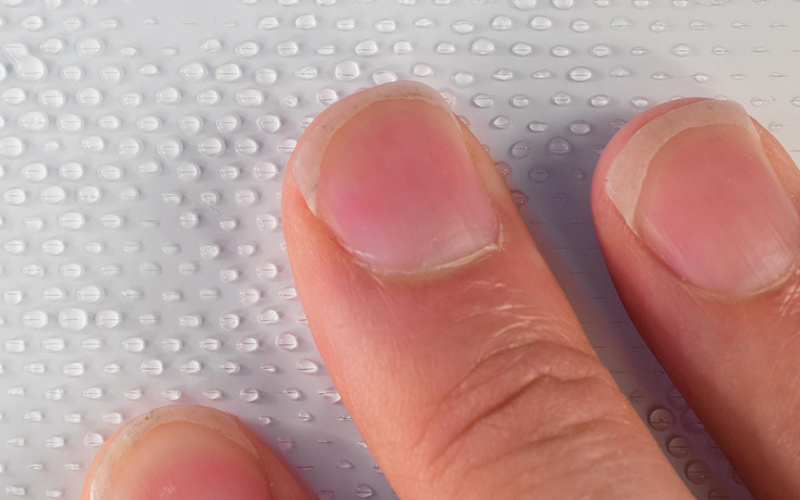
What are Antibacterial Door Pads?
Antibacterial Door Pads are a kind of self-disinfecting surface that that dispenses a small amount of alcohol gel from a special textile in place of the traditional door plate, the part of the door that people push to open.
How can Antibacterial Door Pads help at Hospitals?
Scientists have developed a new way to fight hospital-acquired infections: a textile that disinfects itself. Tests show it can reduce bacteria levels by more than 90 per cent. By incorporating the specially-engineered textile in a device designed to be used on hospital doors instead of the traditional aluminium door plate, that part of the door that people push to open it - they aim to bolster hand hygiene.
The self-disinfecting device - known as Surfaceskins - has been developed by a spin out company from the University of Leeds and is the culmination of seven years research and development.
Hospital doors are recognised as a key weak link in hygiene because of the number of times people touch them. It takes just one person with dirty hands to pass through a door to put everyone else who follows at risk of cross contamination. Surfaceskins antibacterial door pads work by dispensing a small quantity of alcohol gel onto the pad when it is pushed, to disinfect the surface ready for the next person to use the door.
This low-cost device, which incorporates three separate nonwoven textiles is designed to be replaced after seven days or one thousand pushes, whichever comes sooner. Nonwovens is a group of textiles created by interlocking or bonding individual fibers or filaments together.
A study into the effectiveness of the new technology has just been published in the Journal of Hospital Infection. At the start of the study, both the Surfaceskins and control aluminium door plates were inoculated with bacteria at levels found on the hands of hospital staff. The study concluded that the Surfaceskins door pads were more effective than standard door plates over seven days in reducing the levels of three bacteria that commonly cause hospital-acquired infections: S. aureus, E. coli and E. faecalis.
The device is fitted into a plastic holster which is attached to the door. Surfaceskins contain a reservoir of alcohol gel and a membrane with tiny valves that dispense the gel onto the surface where it is pressed when opening a door, self-disinfecting it within seconds.
Surfaceskins are being targeted at other industrial sectors where there is a need for meticulous hand hygiene such as in catering and hospitality. They could also be used on cruise ships where the spread of bacteria can lead to outbreaks of sickness. The company has also developed a door handle using the Surfaceskins technology.
Surfaceskins is a collaboration between the Nonwovens Innovation and Research Institute Ltd (NIRI), a spin out company from the University of Leeds's School of Design, and two industrial designers, Adam Walker and Simon Scott-Harden.